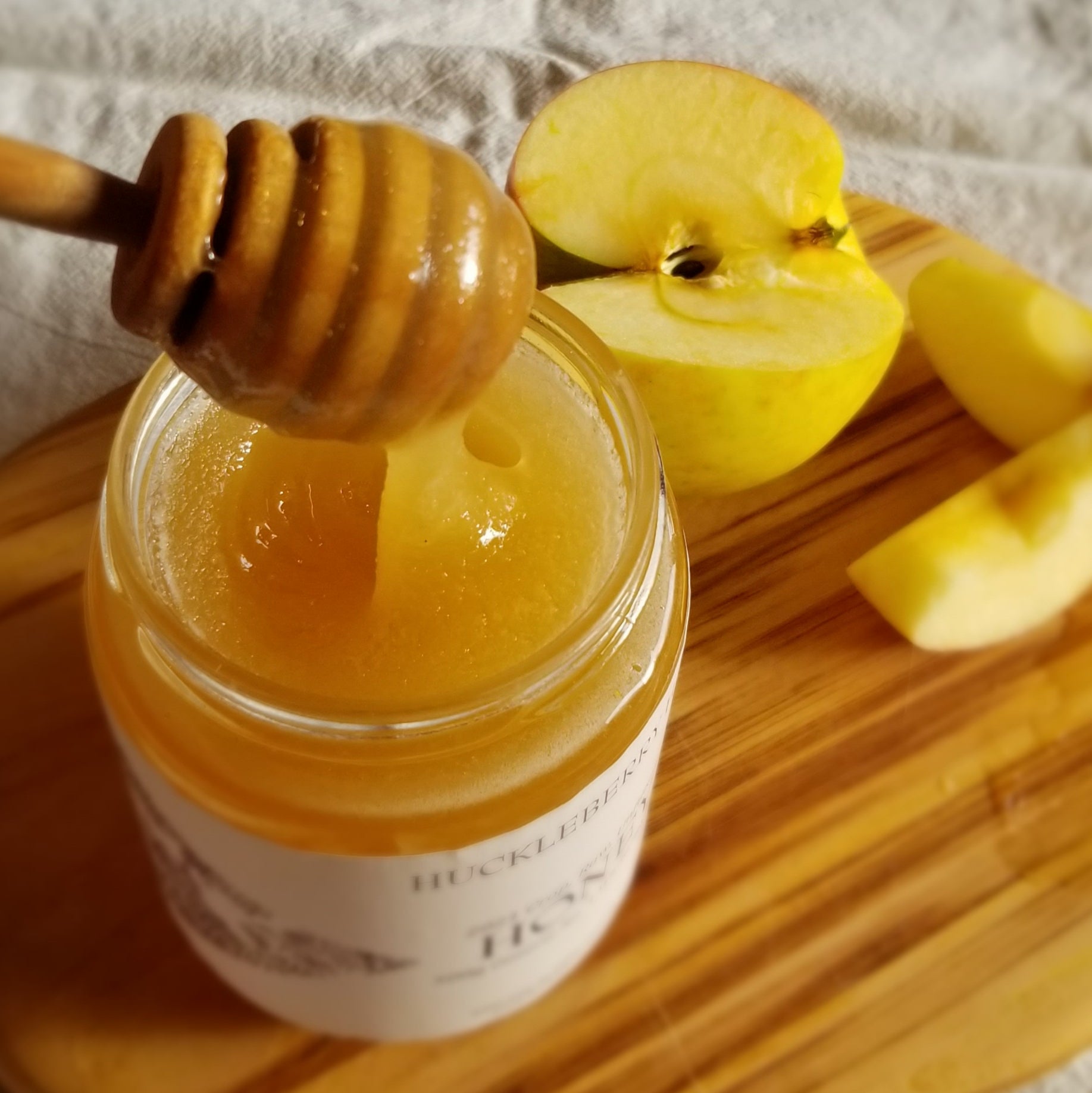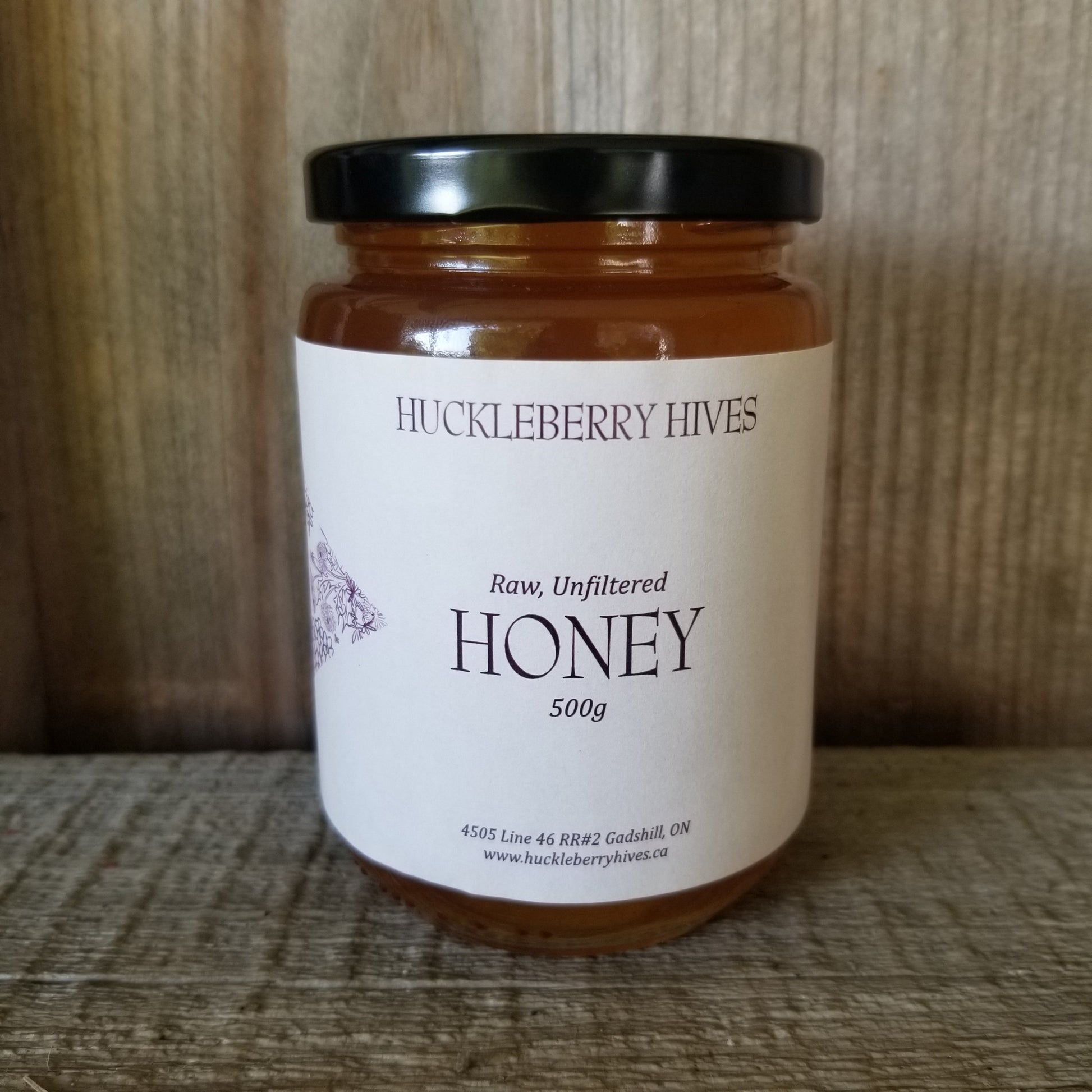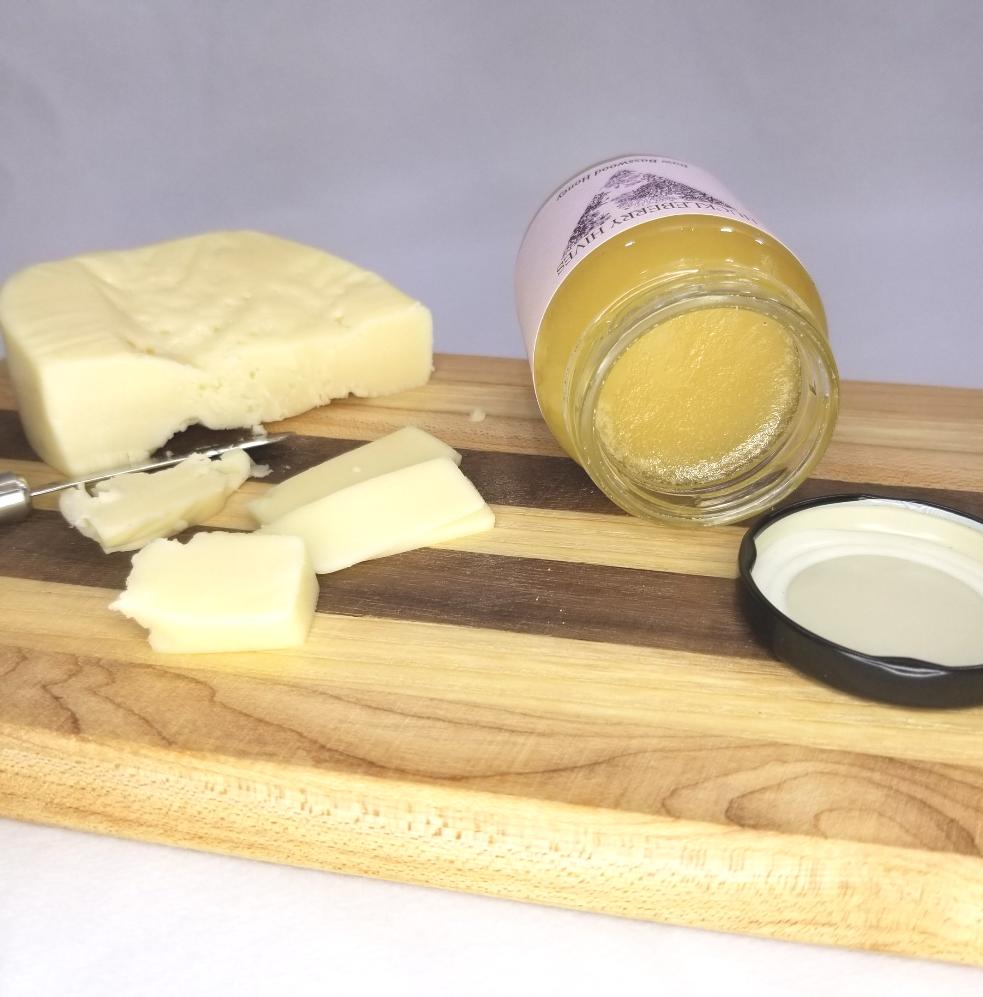Raw Multifloral Summer Blossom & Wildflower Honey
Raw Multifloral Summer Blossom & Wildflower Honey
Couldn't load pickup availability
This honey is pure, unadulterated goodness from my hives. I harvest honey with care each season when the bees have enough extra to share. Each season the local terroir influences the flavours captured in my jars of liquid gold, although often there are similar flowers and farmers crops, such as alfalfa, clovers, sunflowers, and more that the bees visit every year.
This year I took a small harvest at the end of July and a final harvest at the end of August. The honey from the 2nd harvest had a small amount of basswood honey which I kept separate, and the rest is a delicious summer blossom/wildflower honey.
- I harvest my honey with a no-heat process. It is cold extracted and then I bottle it up before it has a chance to crystallize.
- When freshly harvested (usually late July or August) this honey is in its liquid state and will slowly crystallize over time.
- Depending on the time of year ordered, it may come to you crystallized (my favourite as it's easier to scoop out!), partially crystallized, or liquid. You can always return honey to it's liquid state with a hot water bath, repeating and stirring to help dissolve crystals if needed. I used to re-heat jars to keep them liquid, but I'd rather sell pure raw honey and will only be doing it upon request.
- Natural crystallization is sometimes fine-grained and can be quite similar to creamed honey, but without the manual labour (or machine) that is typically used to create creamed honey.
Why does honey crystallize? Honey is made by the bees, who collect nectar from flowers. The nectar is naturally about 80% water and sugars, most of which are sucrose. The bees use their own special enzymes to break down the sucrose into fructose and glucose - the same types of sugars found in apples and other fruits and vegetables. This helps make honey a naturally healthy sweetener because our bodies recognize it quickly and both fructose and glucose are smaller sized molecules of sugar which our bodies can digest easily. But where does the crystallization come in? Right here: Glucose naturally prefers to form a crystalline structure, so over time it separates and builds itself into crystals within your jar of honey!
There is nothing wrong with honey that has gotten crystallized and it is perfectly safe to eat. However, if you prefer it liquid, you can gently heat your honey to cause the glucose' crystalline structure to dissolve back into a liquid state. Over-heating honey can destroy healthy enzymes, so it is recommended to heat no hotter than your hand can stand. My go-to method is to boil water in a kettle or saucepan, remove from heat, and place my jar into it. Allow to cool, stir and repeat if your jar is quite crystallized.
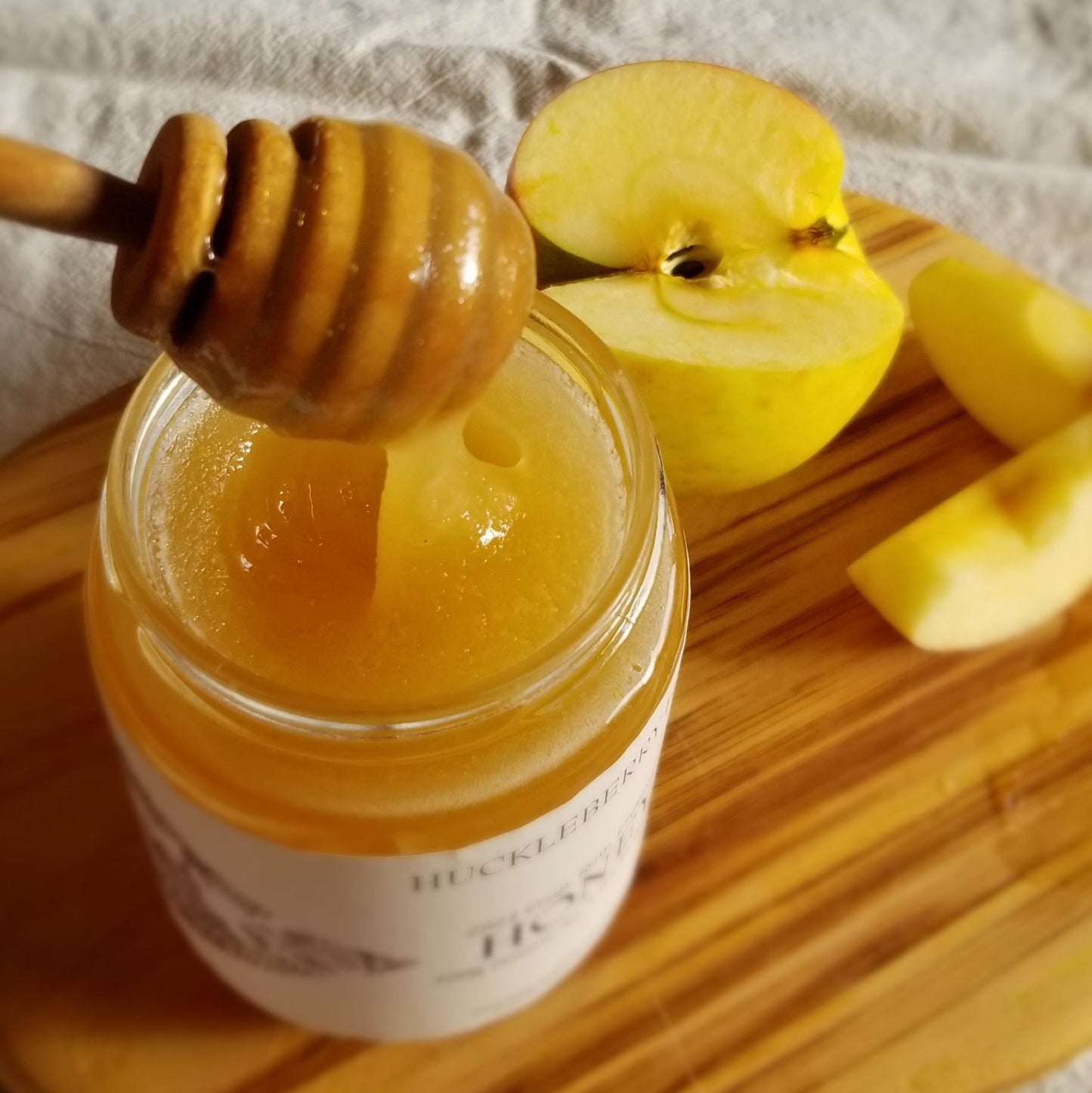
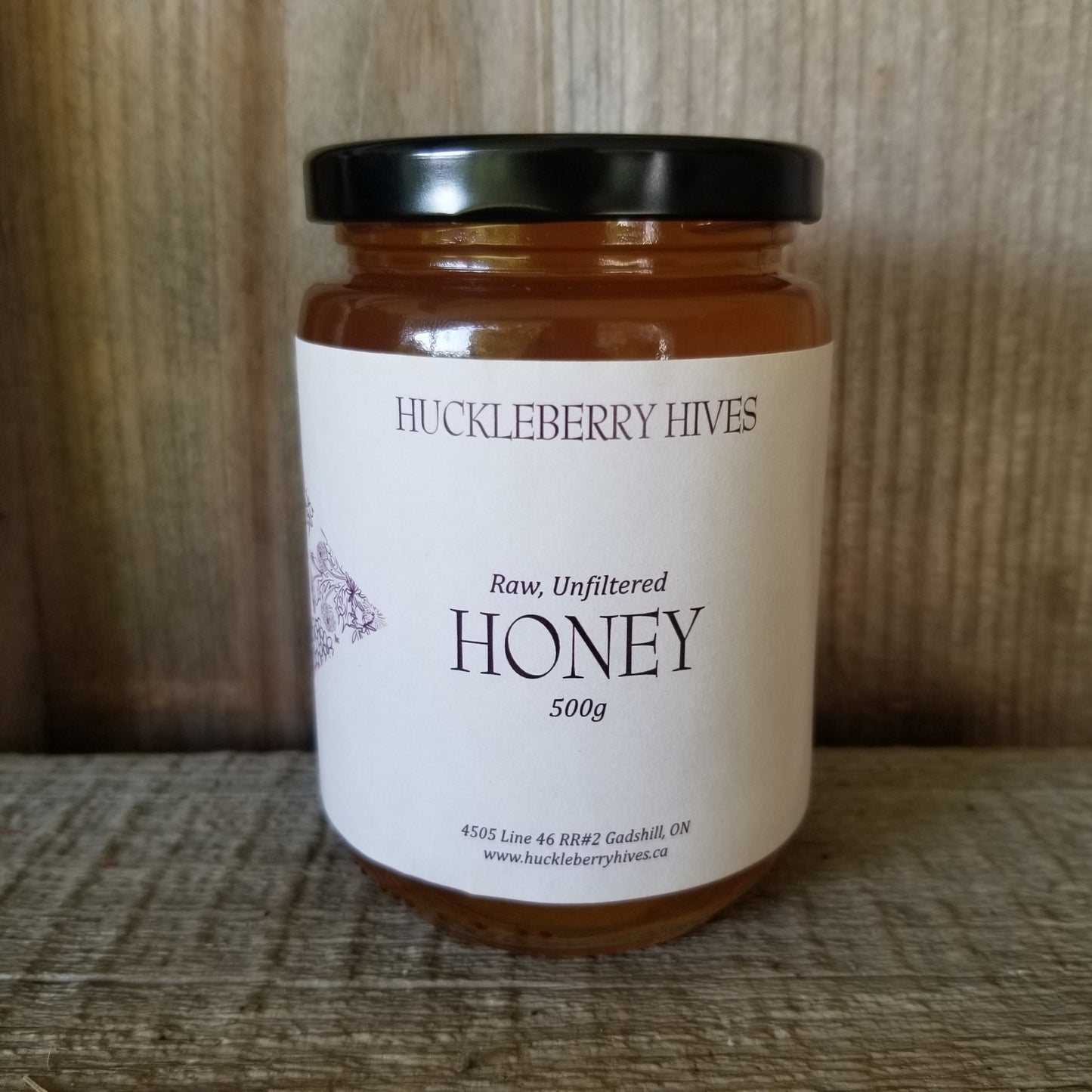
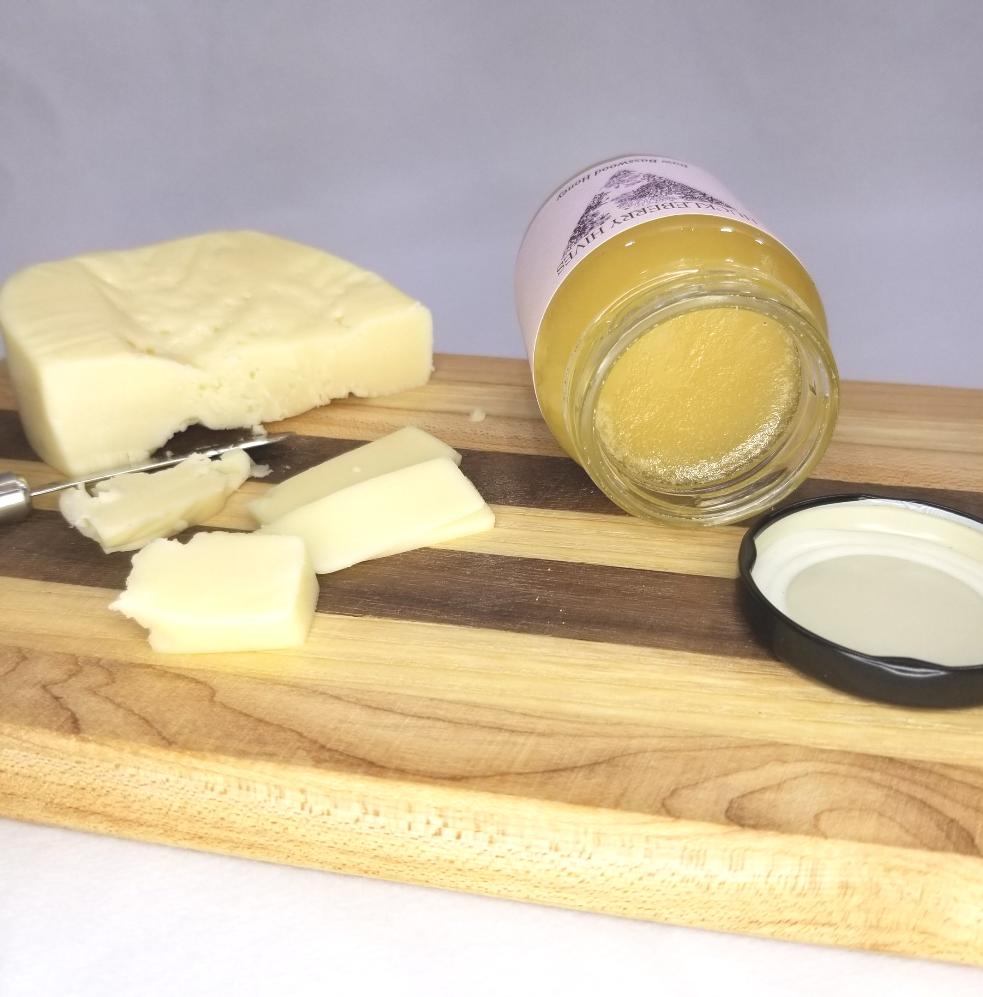
One of my favorite honey

